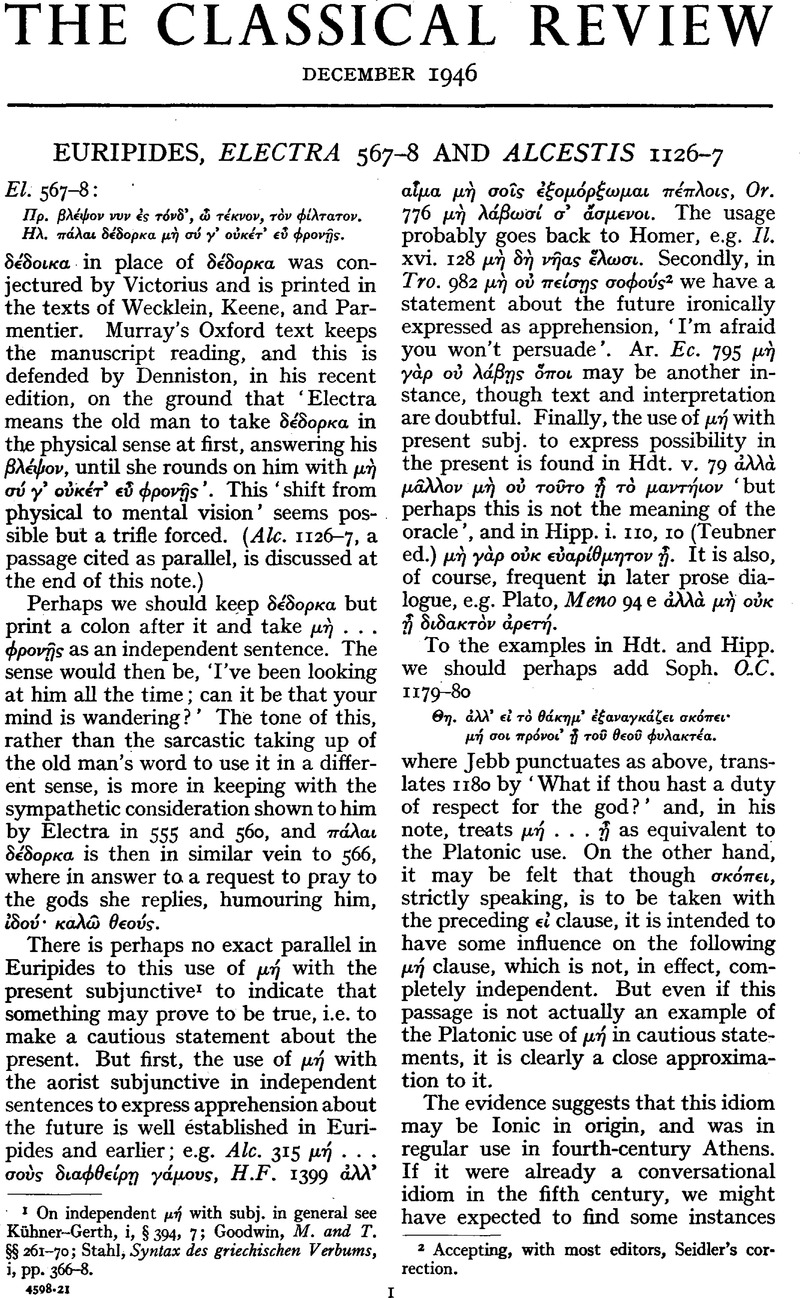No CrossRef data available.
Published online by Cambridge University Press: 27 October 2009

101 page note 1 On independent μά with subj. in general see Kühner-Gerth, i, ª 394, 7; Goodwin, M. and T. ªª261–70; Stahl, Syntax des griechischen Verbums, i, pp. 366–8.
101 page note 2 Accepting, with most editors, Seidler's correction.
102 page note 1 After I had written this note my attention was drawn to Mr. J. Jackson's suggestion in C.Q. xxxv (1941), p. 182. At El. 568 he reads πάλαι δέδρκα.—μὴ σύ γ'· οὐκέτ' εὖ φρονεῖς. and takes δέδορκα as I have done, but treats μί δú γ' as an independent sentence. This elliptical use of μί δ´ γε is certainly common, but in this passage it is intelligible only in the light of a piece of stage business which Mr. Jackson suggests, but of which the text gives no definite indication. This particular action (‘the old man makes a motion to lead her to her brother’) is not difficult to imagine, but in view of the general practice of the tragedians to indicate any essential ‘business’ in the text, it is perhaps better not to have recourse to imagination of this kind.Google Scholar
102 page 2 See , C.R.xliii. 119; 54. 214.Google Scholar
102 page 3 This amounts as far as I can see to 1128, which on Denniston's view is a defensive remark and incompatible with the absence of suspicion against H. in the previous line as printed above.Google Scholar
102 page 4 e.g. αίδχúνομαι in El. 44, 45.Google Scholar
102 page 5 Cf. the common use in Plato of öρα μί with indie, in a similar sense, e.g. Theaet. 145 c ἀλλ' ὅρα μή, ‘are you sure he wasn't joking?’Google Scholar
102 page 6 Continuing from 1125 to 1132.
102 page 7 The asyndeton would also be difficult here.